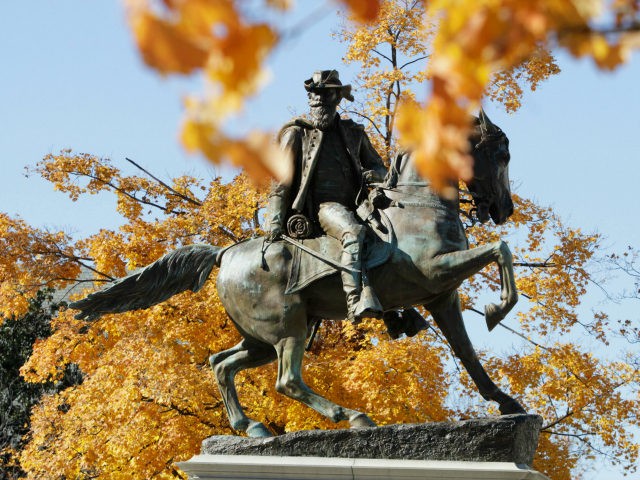Intimidation and bullying are tried and true methods of silencing people. We see it on a nearly daily basis at colleges and universities where “Free Speech Zones” reduce the 1st Amendment to veritable postage stamps of campus real estate. Speakers are hounded from schools with threats of violence and name calling that routinely breaches the threshold for slander.
This trend in higher education is migrating to public schools, with its authoritarian force on display at J.E.B. Stuart High School in Fairfax County, Virginia, where the school board is contemplating changing the name of the school. Stuart was an officer in the U.S. Army in the mid-19th century and sided with the South during the Civil War. He achieved notoriety as a Confederate cavalry officer before being killed in battle, and some argue that his name on the suburban Washington, D.C. school promotes the underlying racism of slavery.
In an effort to amplify their argument on the issue, some activists are resorting to violence. A May 18 public meeting about the name change forced law enforcement response that included, “several police cruisers lined the street outside the high school just in case the meeting got out of hand,” according to a Fox 5/Washington, D.C. news. Worse yet, those who want to keep the name are being subjected to violent intimidation from those who wish to remove Stuart’s name from the school.
WUSA-TV in Washington, D.C. reported earlier this month that, “community leaders advocating to keep the name have filed police reports after they were called white supremacists on the anonymous web forum Fairfax Underground.” The net effect of this intimidation was to silence people and frighten them away from the May 18 hearing, telling WUSA, “they won’t attend the meeting out of fear for their safety.”
“At least a half-dozen Fairfax police officers kept watch over the meeting, where people spoke mostly in support of the name change,” reported the Washington Post. “There were a few who spoke against it, receiving the occasional jeer.” Others who support keeping the name told the Post, “they worried they would encounter hostility because they had been called racists in online forums.”
Accompanying this violence and intimidation are secret talks among school officials concerning the name change and the approximately $1 million cost associated with it. The school board’s response to this disclosure, revealed through a Freedom of Information Act Request, was to say the board is looking at, “public and private partnerships to finance any name changes as well as examine ways to prevent any added burden to the school’s booster club, the Parent, Teacher, and Student Association and the school administration.”
Based on this disclosure, it appears that a decision has already been reached, in secret, to remove Stuart’s name from the school, well in advance of a June 22 school board meeting at which a decision is scheduled to be announced. Long story short: the fix is in.
Set aside for a moment the cost to taxpayers for this name change, the specter of political correctness run amok, and the lack of public support for changing the school’s name. More important than any of this is how the J.E.B. Stuart High School debate illustrates the insidious way in which free thought and history are being extinguished through a combination of deliberate administrative opacity and authoritarian thuggery.
The author George Orwell is credited with observing that, “The most effective way to destroy people is to deny and obliterate their own understanding of history.” That is what is happening in Fairfax County today; the erasing of history. Lacking dictatorial powers, those demanding history’s erasure resort to violence, bullying, and intimidation. It is the same pathology that advocates book burning.
J.E.B. Stuart, the Confederacy, the Civil War, slavery — all are part of our history. They are not to be airbrushed from our past in a manner reminiscent of Soviet censorship. They should be examined and understood, both in context and in retrospect. It is the ability to do this which separates democracies from tyrannies. The question today is not what sort of nation we were but what sort of nation we will become.
Scott Hogenson is a public relations executive in the Washington, D.C. area.

COMMENTS
Please let us know if you're having issues with commenting.